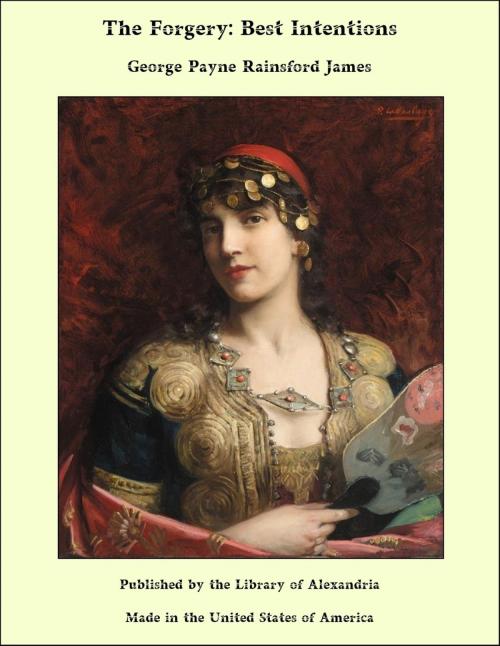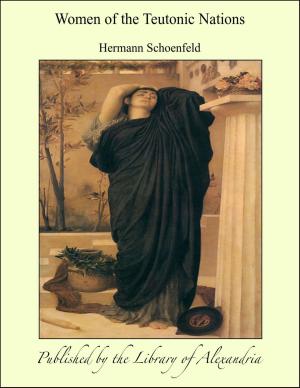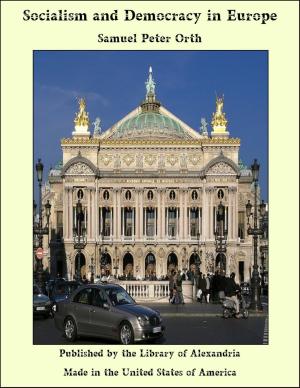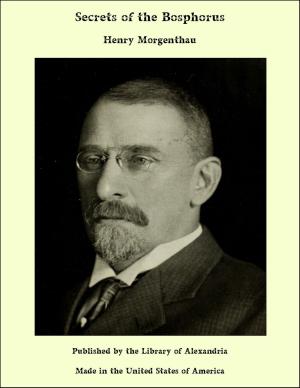The Forgery: Best Intentions
Nonfiction, Religion & Spirituality, New Age, History, Fiction & Literature| Author: | George Payne Rainsford James | ISBN: | 9781465607270 |
| Publisher: | Library of Alexandria | Publication: | March 8, 2015 |
| Imprint: | Language: | English |
| Author: | George Payne Rainsford James |
| ISBN: | 9781465607270 |
| Publisher: | Library of Alexandria |
| Publication: | March 8, 2015 |
| Imprint: | |
| Language: | English |
One of the finest characters in the world was the old English merchant. We may and have improved upon many things, but not upon that. A different spirit reigns in commerce from that which ruled it long ago, and not a better one. We are more the shopkeeper, as a celebrated but not a great man called us, and less the merchant. As a people, our commerce is more extended, but the separate transactions are smaller; and minute dealings almost always produce paltry minds. Not at all do I mean to say that the old English merchant is without his representatives; but they are fewer than in other times, both with reference to our numbers and to our extended trade. There are many still, however, whose notions are as vast and as just as those of any of our ancestors; and amongst them, not very long ago, was a gentleman of the name of Humphrey Scriven. He was a highly-educated and naturally-gifted man, the son of wealthy and respectable parents in a class of society peculiar to England--the untitled country gentry; and he had been originally intended for the church. Circumstances, however, are to most men fate. He became acquainted, by some mere accident, with the only daughter of a rich merchant--admired, loved her, and won her love in return. He was a younger son; but, nevertheless, her father was a kind and liberal man, and he consented to their marriage upon one condition: that Mr. Scriven should abandon his intention of entering the church, and become a merchant like himself. He fancied that he had perceived in the young man a peculiar aptitude for business, and he was not mistaken. Mr. Scriven became his son-in-law, his partner, and his successor; and well did he bear up the name and honour of the house. It was a fine thing to see him, some twenty years after his marriage, when, with the business of the day over, he sat in his splendid house in St. James's Square, surrounded by his family, and often associated with the noblest and the proudest of the land. His wife was no longer living, but she had left him four very handsome children. She had herself been remarkably beautiful, and her husband was as fine a looking man as eye could see--tall, graceful, vigorous, and possessing that air of dignity which springs from dignity of mind. From the moment that five o'clock struck, Mr. Scriven cast off all thought and care of business; for, though there were, of course, with him as with other men engaged in similar pursuits, fluctuations and changes, bad speculations, failing debtors, and wrecked ships, still his transactions were too extensive for the loss of a few thousand pounds here or there to weigh upon his mind; and, being of a cheerful and happy disposition, he spread sunshine through his dwelling.
One of the finest characters in the world was the old English merchant. We may and have improved upon many things, but not upon that. A different spirit reigns in commerce from that which ruled it long ago, and not a better one. We are more the shopkeeper, as a celebrated but not a great man called us, and less the merchant. As a people, our commerce is more extended, but the separate transactions are smaller; and minute dealings almost always produce paltry minds. Not at all do I mean to say that the old English merchant is without his representatives; but they are fewer than in other times, both with reference to our numbers and to our extended trade. There are many still, however, whose notions are as vast and as just as those of any of our ancestors; and amongst them, not very long ago, was a gentleman of the name of Humphrey Scriven. He was a highly-educated and naturally-gifted man, the son of wealthy and respectable parents in a class of society peculiar to England--the untitled country gentry; and he had been originally intended for the church. Circumstances, however, are to most men fate. He became acquainted, by some mere accident, with the only daughter of a rich merchant--admired, loved her, and won her love in return. He was a younger son; but, nevertheless, her father was a kind and liberal man, and he consented to their marriage upon one condition: that Mr. Scriven should abandon his intention of entering the church, and become a merchant like himself. He fancied that he had perceived in the young man a peculiar aptitude for business, and he was not mistaken. Mr. Scriven became his son-in-law, his partner, and his successor; and well did he bear up the name and honour of the house. It was a fine thing to see him, some twenty years after his marriage, when, with the business of the day over, he sat in his splendid house in St. James's Square, surrounded by his family, and often associated with the noblest and the proudest of the land. His wife was no longer living, but she had left him four very handsome children. She had herself been remarkably beautiful, and her husband was as fine a looking man as eye could see--tall, graceful, vigorous, and possessing that air of dignity which springs from dignity of mind. From the moment that five o'clock struck, Mr. Scriven cast off all thought and care of business; for, though there were, of course, with him as with other men engaged in similar pursuits, fluctuations and changes, bad speculations, failing debtors, and wrecked ships, still his transactions were too extensive for the loss of a few thousand pounds here or there to weigh upon his mind; and, being of a cheerful and happy disposition, he spread sunshine through his dwelling.















